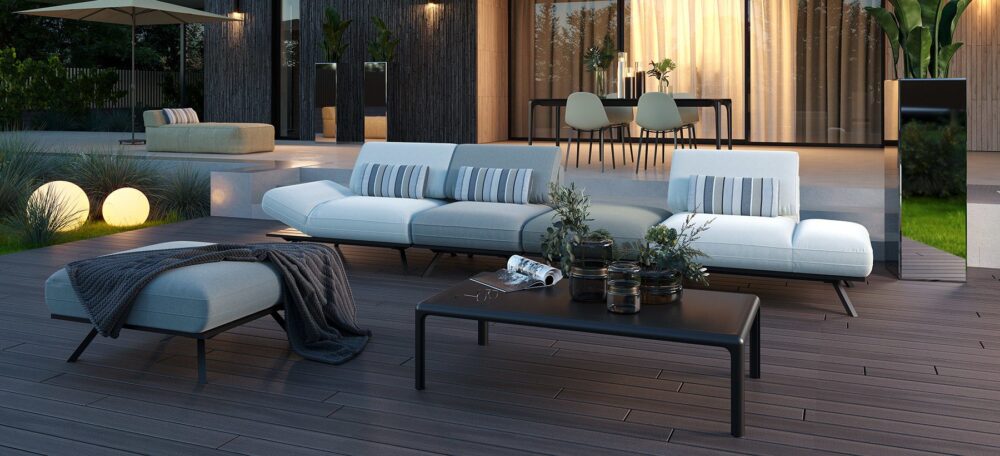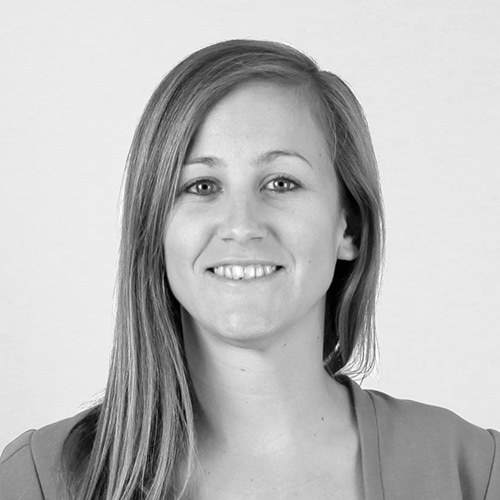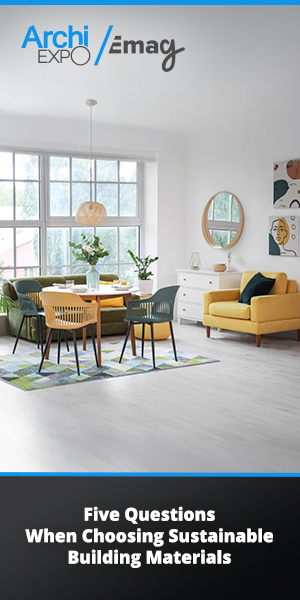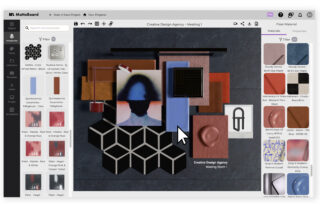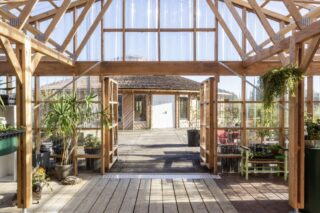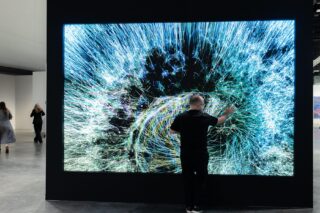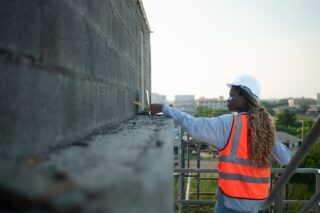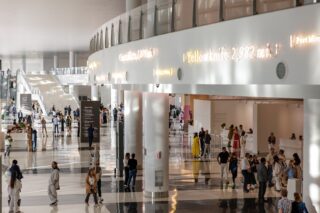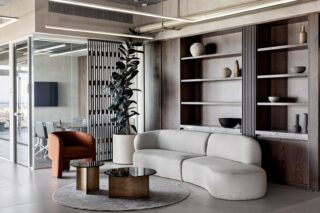CEO Barbara Joly reflects on Joly Design’s 45-year journey and discusses the use of digital tools, sustainable materials, and the future of international furniture design.
With over 40 years of expertise and 12,000+ original models, Joly Design has become a major force in international furniture design. Founded in 1981 by Sylvain Joly and now led by his daughter Barbara, the Paris-based studio continues to influence modern living through partnerships with brands like Château d’Ax, Natuzzi, and Kuka Home. This month, Joly Design unveiled a new sofa with Kuka Home, marking 20 years of collaboration.
Known for combining refined aesthetics with innovation and sustainability, the studio embraces digital tools, AI, and recycled materials. In our interview, Barbara Joly discusses recent projects—including the new model for Kuka, the P115 TARGA, and MK1991—and shares her vision for the future of sofa design.
We had the opportunity to talk with Barbara Joly in a video call to discuss her work.
ArchiExpo e-Magazine: How does Joly Design plan to mark its 45th anniversary beyond Milan?
Barbara Joly: We’ve just entered our 45th year, and discussions are underway internally. We’re exploring ways to mark the occasion — possibly through retrospectives — but nothing is finalized yet. We’ll share more as plans take shape.
ArchiExpo e-Magazine: How has your business background shaped your leadership at Joly Design? How do you balance tradition and innovation?
Barbara Joly: My 20-year background in communications and agency leadership shapes how I lead Joly Design. We place our clients’ brand identity at the center of the design process: who they are, why they matter, and how our work strengthens the bond between brand and audience.
I aim to preserve what works in a traditional industry while embracing innovation where it improves our work or aligns with how people experience design today. For example, we use digital monitoring to track trends and digital modeling to present our work on Instagram.
On Models & Design Approach
ArchiExpo e-Magazine: Can you tell us about the concept and design story behind the new model recently unveiled with Kuka Home? What makes for a lasting partnership in design, like the 20-year relationship with Kuka?
Barbara Joly: The Moon Bay sofa blends Oriental grace with French elegance. We shaped it like a mineral form softened by time. We have been inspired by the poetic idea that people across the world can share the same moon in peace.
Our 20-year partnership with Kuka Home is built on trust, mutual respect, and a shared belief in each other’s strengths. Together, we’ve created models that consistently resonate with their audience — that’s the key to our lasting success
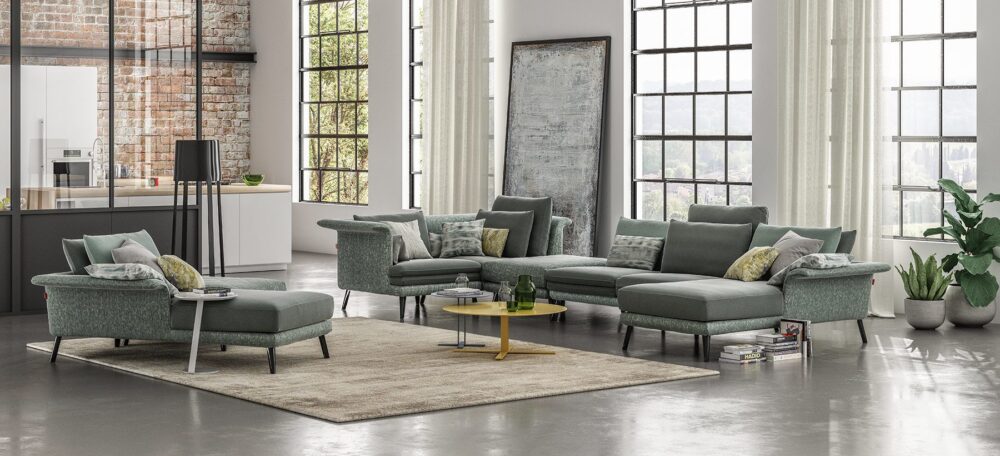
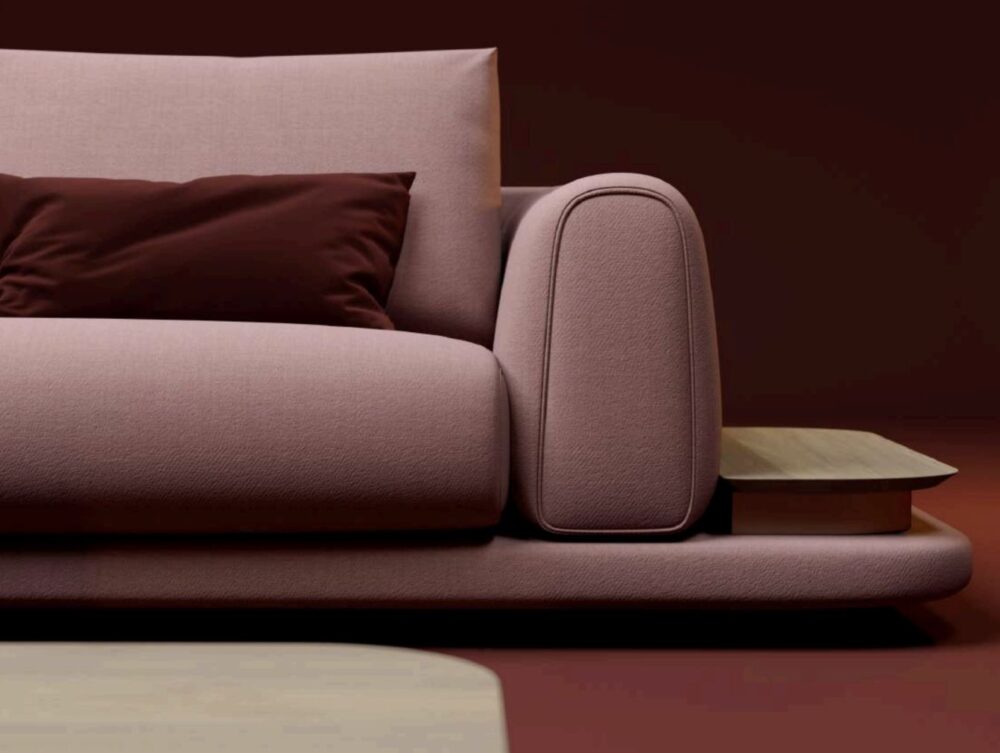
ArchiExpo e-Magazine: The P115 TARGA and MK1991 are considered iconic—what do you think made these models resonate so strongly with clients and consumers?
Barbara Joly: The MK1991 is iconic for its timeless minimalism. Its seamless, international design language, generous modularity, and integration of mixed materials — including wood shelving — gave it broad appeal. Its neutral palette and textile-inspired throw cushions made it especially adaptable to trends while retaining elegance.
The P115 TARGA, on the other hand, stands out with its organic simplicity and a distinctive backstitch detail that adds quiet character. Its use of corduroy velvet brings sensuality not just to the eye, but to the touch — reinforcing the softness of its form.
On Manufacturing & Materials
ArchiExpo e-Magazine: How does your team balance aesthetic vision with the manufacturing constraints of large-scale partners like Château d’Ax or Natuzzi?
Barbara Joly: We see constraints as a way to design smarter. They can fuel creativity rather than limit it. The goal is to create designs that are both appealing and feasible. A brand’s manufacturing limits shape its design language — they become part of its identity. Sometimes, larger manufacturers offer more flexibility.
ArchiExpo e-Magazine: You’ve mentioned using materials like recycled oyster shells—can you share more about your current eco-design initiatives?
Barbara Joly: We keep a close watch on emerging sustainable and recyclable materials — it’s a key part of our role to connect ecologically innovative suppliers with our industrial clients. For example, we’ve worked with recycled fabrics from Gabriel in Paris, and bio-sourced composites like oyster shell materials from Malakio in Brittany, France.
Eco-design is still developing for many established players. So our responsibility goes beyond materials — it’s about considering a product’s end-of-life early in the process. That’s why we work with partners like Camif, whose environmental standards are high. We collaborate with manufacturers to meet those standards without compromising design.
On Process & Technology
ArchiExpo e-Magazine: How has the integration of 3D tools and artificial intelligence changed the way your designers approach new projects?
Barbara Joly: We adopted 3D tools in 2018 and have continued to develop them. Today, our software connects with production tools, making the transition from concept to fabrication smoother. Our visualizations are realistic, allowing clients to choose designs that began as internal explorations. This has changed our process — our ideas can now lead projects, not just respond to briefs.
We’re exploring AI tools, but none meet our full needs yet. Sofa design requires balancing comfort, structure, pricing, and appeal. No AI tool has achieved that yet. However, some tools show promise for visualization.
ArchiExpo e-Magazine: Can you walk us through a typical creative cycle at Joly Design—from concept to prototype?
Barbara Joly: Every project starts with listening — understanding the client’s brand, goals, and user expectations. We then co-create a brief and enter the creative phase: sketching, 3D rendering, and exploring feasible ideas.
We work closely with R&D throughout. Our 3D models are realistic and linked to production tools, speeding decisions. After the prototype, we continue analyzing and refining. It’s a full, collaborative cycle.
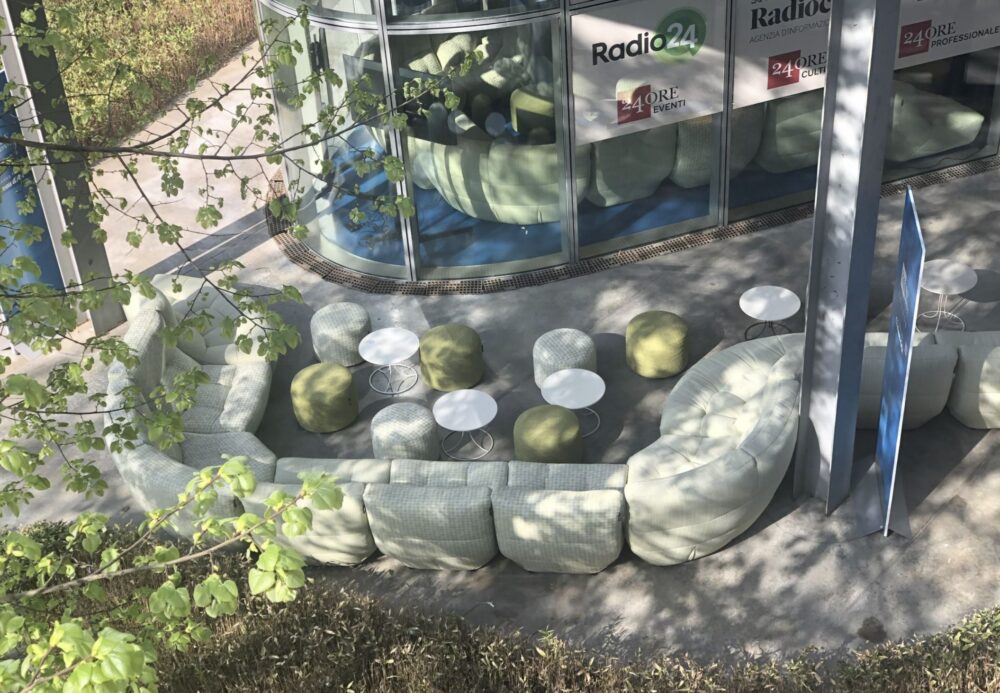
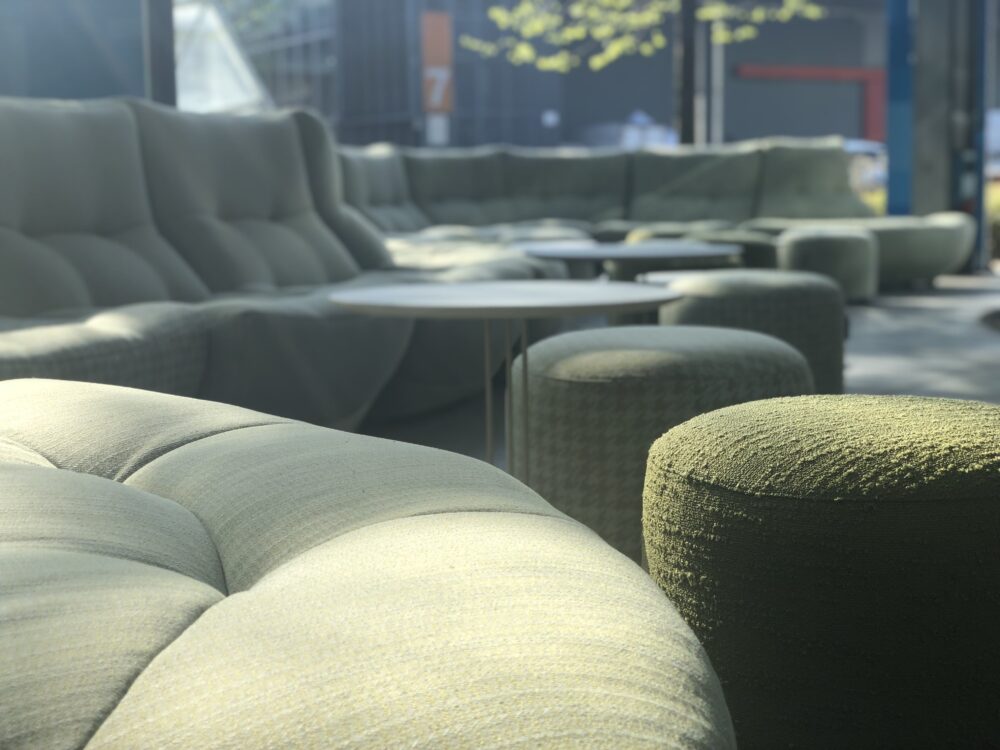
Global Markets, Milan, and Beyond
ArchiExpo e-Magazine: With 80% of your business now international, how do you adapt French design values to different global markets?
Barbara Joly: We start with client needs, wherever they are. That means understanding local cultures and expectations. Once we understand the market, we respond with our touch — the French art de vivre. We aim to create products that are pleasing, functional, and carry a quiet elegance.
ArchiExpo e-Magazine: How does Milan remain a strategic showcase and innovation catalyst for French designers?
Barbara Joly: Milan, like Paris, is where fashion, art, architecture, and design intersect. It’s also home to iconic Italian furniture makers who inspire the industry through craftsmanship and innovation.
For us, Milan is essential. Beyond visibility, it’s a place for connections and ideas that lead to future collaborations.
ArchiExpo e-Magazine: You have a small core team—what advantages or challenges does this bring to handling large, international projects?
Barbara Joly: Our small team gives us agility, speed, and cohesion. Everyone is involved, which keeps us focused and connected to each project.
For large projects, we scale up with tailored ecosystems — bringing in trusted partners and local experts as needed. This flexibility allows us to stay small but think big.
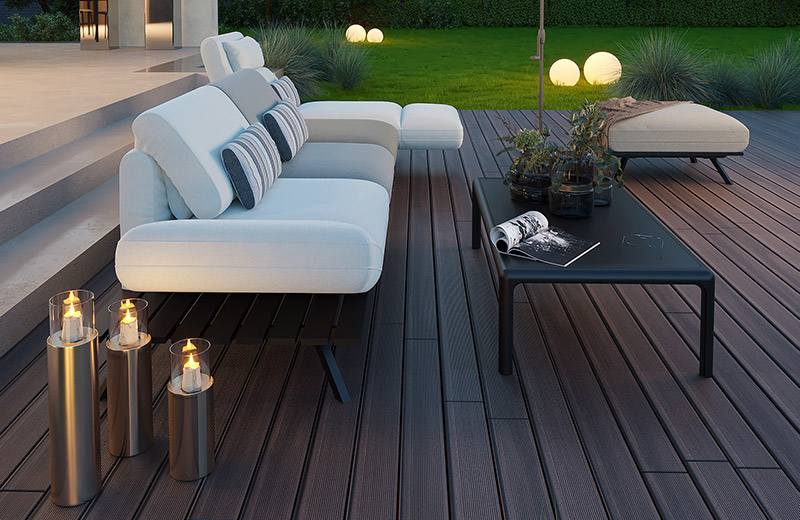
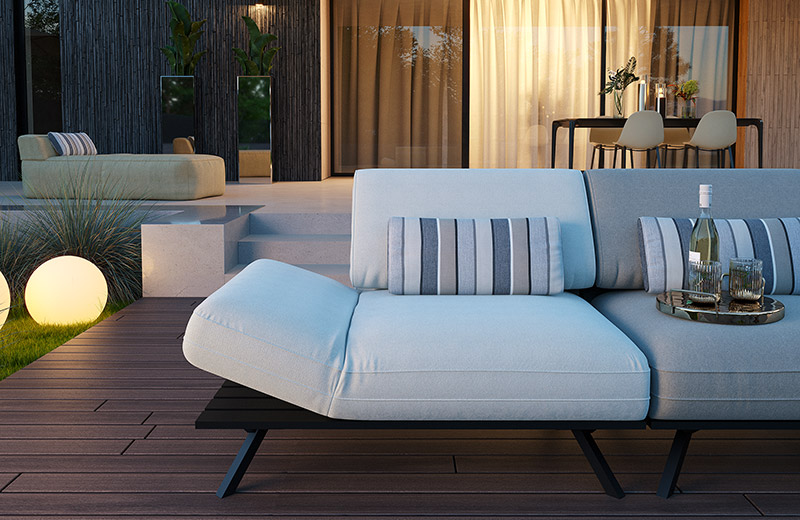
On Strategy & the Future
ArchiExpo e-Magazine: One of your stated priorities is diversifying into outdoor furniture—what can we expect in that category?
Barbara Joly: As indoor sofa specialists, it was natural to extend that comfort outdoors. We aim to recreate the feeling of home outside, with the same attention to ergonomics, detail, and function.
Outdoor living deserves the same care and refinement.
ArchiExpo e-Magazine: Looking toward 2030, what role do you see Joly Design playing in shaping the future of sustainable and emotionally resonant furniture?
Barbara Joly: By 2030, we aim to be a leading European design studio, especially for sofas. This position lets us influence the market meaningfully.
We want to be a bridge between established manufacturers and innovators. At the same time, we’ll continue listening and anticipating what people want from their furniture — comfort, function, and design.
We hope our role will be defined by expertise, awareness, impact, and intuition.
